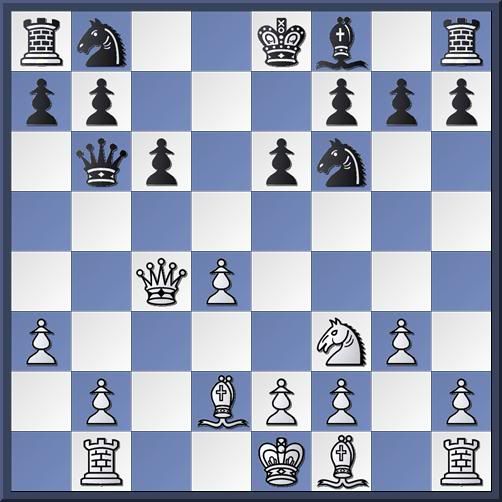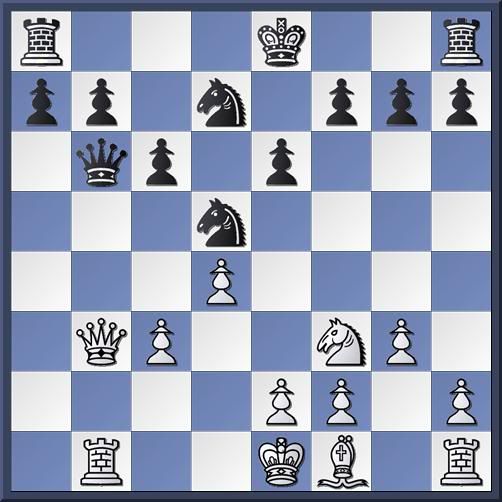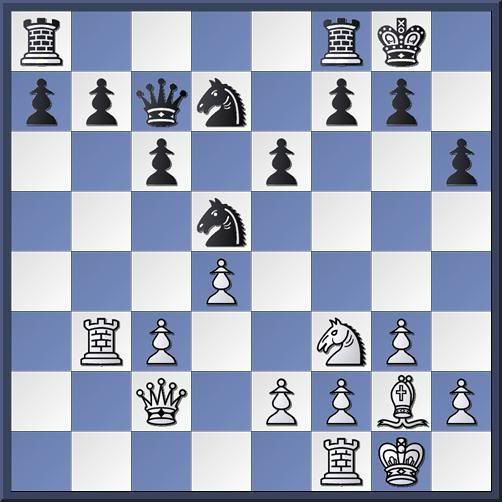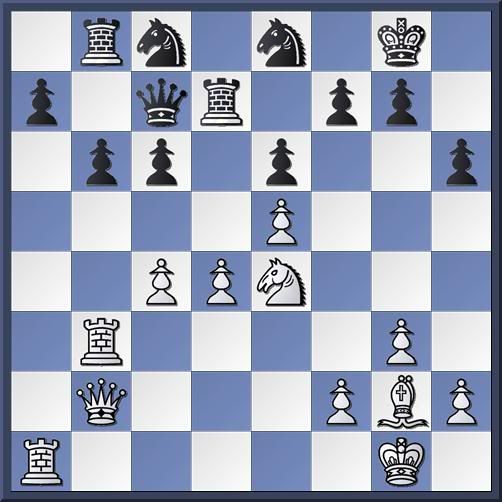Last Thursday in the first round of our annual Taxing Quads, I faced Krasin for our second standard rated tournament game. Again I had White. Again he played some offbeat moves. Again he won a pawn early in the game. This time, however, I secured the initiative and pushed his pieces back. Securing the initiative, however, was largely a consequence of gifts from my opponent who missed several opportunities to end my plans for expansion in the center.
Eventually a tactical shot presented itself. I examined it for several minutes, concluded that it was risky, and played a waiting move. The same tactic was clearly winning after his next move and I played it. The rest was a matter of technique, as the grandmasters say, but we are not grandmasters and I spent a bit of time contemplating a sequence of crazy moves that could have lost it for me. Fortunately, I found the strongest move and played it instead.
Stripes,James (1839) - Krasin,Jeremy (1723) [D06]
Taxing Quads, Spokane 2011
1.Nf3 d5 2.d4 Bf5 3.c4 Bxb1 4.Rxb1 c6 5.Qb3

Probably not the best move. 5.e3 seems better.
5...Qa5+N 6.Bd2 Qb6

7.Qc2
During my longest think of the game, I considered positions beginning 7.Qxb6 axb6 8.cxd5 Rxa2 9.Bb4 (9.dxc6 bxc6 10.e3) 9...e6
7...Nf6 8.g3
8.e3 might have been better 8...dxc4 9.Bxc4 e6 10.a3
8...e6 9.a3 dxc4 10.Qxc4?
10.Ne5 Qxd4 11.Nxc4 =
10.e3 maintains initiative
10.b3!?

10...Bxa3! Now, I'm one pawn down.
11.Qa2 Bb4 12.Bc3 Nd5 13.Qb3?
I considered the superior 13.Rc1.
13...Bxc3+ 14.bxc3 Nd7?

Lets me clamor back to equality. 14...Nxc3 and Black has the advantage.
15.Qc2 Qc7 16.Bg2 h6
I learned in our first game that Krasin likes to play this move, although then he played it much earlier, and when it prevented Bg5. I was a little surprised this time, and thought it wasted a valuable tempo.
17.0–0 0–0 18.Rb3

18...Rab8
18...a5 gives White a problem.
19.e4 N5f6 20.c4 Rfd8 21.Nd2?
The immediate 21.e5 was neecessary.
21...Nb6?
21...e5 exploits White's error.
22.e5 Ne8 23.Qb2

23...Rd7
Again, Black missed an opportunity to disrupt White's plans with 23...c5!
24.Ra1 Nc8 25.Ne4 b6

An inviting tactical opportunity presents itself. I examined it and rejected it.
26.h3?!
26.Nc5! Rxd4 27.Na6
26...Ne7?
After the game we looked at 26...Rb7 27.Rb1 Ne7 28.Nc5±. Rybka likes 26...Rd8 with equality.
27.Nc5! Rxd4
Rybka likes Rbd8.
28.Na6 Qd8 29.Nxb8 Rxc4 30.Bf1 Rd4 31.Rxa7 Rd2 32.Qc3
32.Qxd2! Qxd2 33.Rxe7 Kf8 34.Nxc6 Qd5 35.Rxb6+-
32...Rd5 33.Ra8?!
33.Nxc6 Nxc6 34.Qxc6+-
33...Kh7 34.Rba3 Nc7

35.Qc2+
35.Nxc6!
35...g6 36.Nxc6 Qd7 37.Nxe7 Rd2 (37...Qxe7 38.R3a7+-)

Here I considered the crazy idea of taking the knight with my queen, reasoning that my rooks on the seventh and eighth ranks would have been decisive. I failed to see that after 38.Qxc7 Qxc7 39.R3a7 Qc5 wins for Black. Rybka assures me that 38.Qxc7 is still winning, but that 39.R3a7 is a blunder. 39.R8a7 would maintain a decisive advantage. Luckily, I contemplated long enough to find the correct move.
38.Ng8! Rxf2
38...Rxc2 39.Nf6+ Kg7 40.Rg8#.
38...Kg7 39.Nf6 Nxa8 40.Rxa8 Qd8 41.Rxd8 Rxd8 42.Qc7+-.
38...h5 39.Nf6+ Kg7 40.Rg8+ Kh6 41.Rh8+ Kg7 42.Rh7+ Kf8 43.Nxd7+ Rxd7 44.Ra8+ Ne8 +-.
39.Qxf2 1–0











Congratulations for the win and the analysis !
ReplyDeleteMay I suggest a few possible improvements ?
I found pretty difficult to recognize White and Blacks pieces especially rooks .
Perhaps , the best way to share annotated games could be to install a viewer ? or to share the game with a database
Thierry